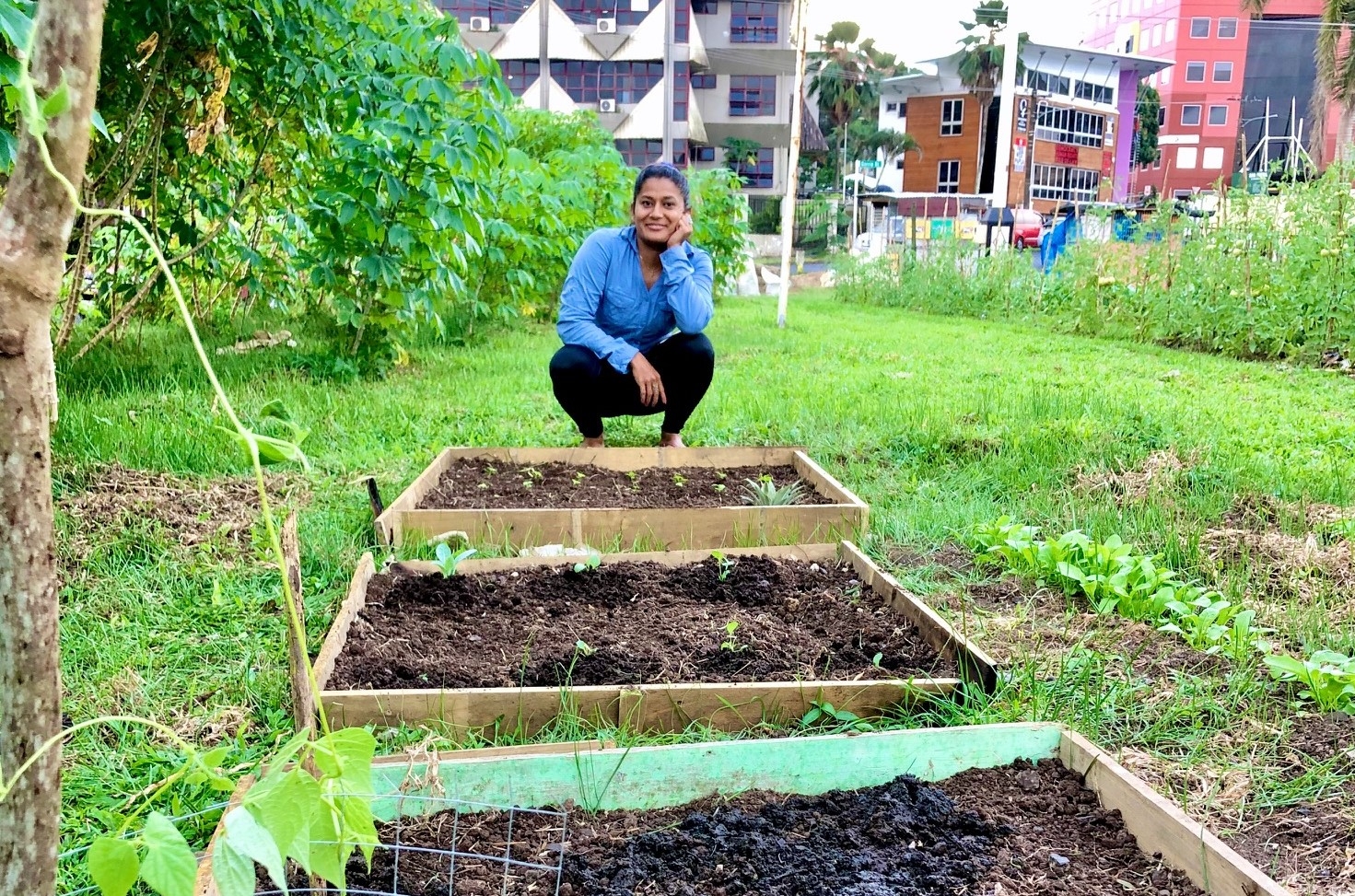As a teenager, the atmosphere in our household every Sunday morning could either be described as a war zone, or a fiesta. It really depended on my mother’s mood, which was determined by whether we would be on time for the 10am mass or not. Scrambling for our Sunday Best (which really should have been ironed the night before), trying to gulp down breakfast one hour before mass started and remembering to take our contributions for the offering were just a few of the chaotic moments before a sense of calmness would settle us down, the minute the top of the Sacred Heart Cathedral came into view.
Days of worship vary in the Pacific, but the common thread that binds us together is that the peoples of the Pacific strongly believe in a higher entity, a God, who we serve through prayer, community service, environmental stewardship and contributions to the church.
This higher entity is the same God we turn to during tumultuous events. Recently, the Pacific has been hit with severe natural and climate disasters and COVID-19. Many Pacific Islanders have found solace in the church, and in their faith. In Tonga, at the peak of severe Tropical Cyclone Winston, 1,850 people took shelter in Latter-Day Saint (Mormon) church buildings.
Pacific Pays the Price
This year, the world fell to its knees as the COVID-19 pandemic swept across the world – showing just how connected and interdependent we are on each other. It’s evident now more than before that what happens in the more developed world, affects EVERYONE.
In the same way, if we look at industrial activity and carbon emissions – the Pacific Islands do not have any coal mines and contribute the least towards global carbon emissions – yet we face the brunt of the climate crisis.
Almost daily, media updates on how governments in more industrialised nations are bailing out the perpetrators of the climate crisis to cope during the global recession paint a dire picture of what’s to come. The climate crisis seems to have taken a backseat to ensuring the comfort of the wealthy corporations who continue to invest heavily in fossil fuels. It is a sad realisation that the best interests of people are not front and centre for most governments.
Whilst G20 nations deliberate over bailouts and salvaging their own economies, the people of the Pacific are steadfast in their faith and modelling all the Principles of a Just Recovery for a more sustainable, secure future.
The five principles of a Just Recovery are:
- Put people’s health first, no exceptions.
- Provide economic relief directly to the people.
- Help our workers and communities, not corporate executives.
- Create resilience for future crises.
- Build solidarity and community across borders – do not empower authoritarians.
Churches Lead on Climate Action
The church has always been a source of hope and help for Pacific Islanders, including the Pacific diaspora in countries such as Australia, New Zealand and the United States. When it comes to climate change, I’ve learnt from Reverend James Bhagwan, General Secretary of the Pacific Conference of Churches (PCC), that churches have been saying the same things scientists have about climate change, long before it hit the mainstream.
As far back as 2004, the PCC met in Kiribati to discuss the effects of climate change on island nations, and produced the Otin Tai declaration, calling on industrialized nations to reduce fossil fuel use, acknowledge responsibility for climate change, and provide more adaptation funding, among other things.
Five years later, the PCC released the Moana Declaration which then led to the establishment of a Climate Change Unit within the PCC to push for the inclusion of climate change into sermons across the Pacific Region, and engage in more constructive dialogue with those most affected by climate change.
Practise What You Preach
A Proverb which resonates well with what what the PCC is doing amidst the backdrop of gloom and chaos is:
“Give a man a fish, feed him for a day; teach him how to fish, and you feed him for a lifetime”
The PCC and the Pacific Theological College’s Institute of Mission and Research are leading the discourse on seeking solutions to resolve the ‘ecological crisis’ facing Pacific Islanders especially its indigenous populations. Aptly called Reweaving the Ecological Mat, in collaboration with civil society organizations and academic institutions like the University of the South Pacific, it is building the foundations of an Ecological Framework for Development that will guide its engagements with its members and offer governments alternatives on development.
In April this year, with the double threats to livelihoods from COVID-19 and Severe Tropical Cyclone Harold, the PCC established its ‘Food Bank and Urban Farm’ in the heart of Suva City, as a model for replication in other Pacific countries. As the food is harvested it will be offered for free at a roadside stall. Some of the crops will be distributed to informal squatter settlements, homes for the destitute and aged care facilities.
Member churches have followed suit and utilised resources available under this initiative, including accessing training, seedlings and farming equipment to encourage communities to help themselves. The Tongan and Vanuatu national councils of churches have asked for support to form similar food banks and money will be sent to facilitate these requests.
As Pacific Islanders, just like our faith, we share similar challenges and are resilient to help ourselves, when our governments are not in a position to do so. It is through building solidarity across existing structures that we can face both the climate crisis and the global pandemic, and we don’t have to look far for living examples of how to do it.
Patricia Mallam is the Senior Communications Specialist at 350 Pacific
